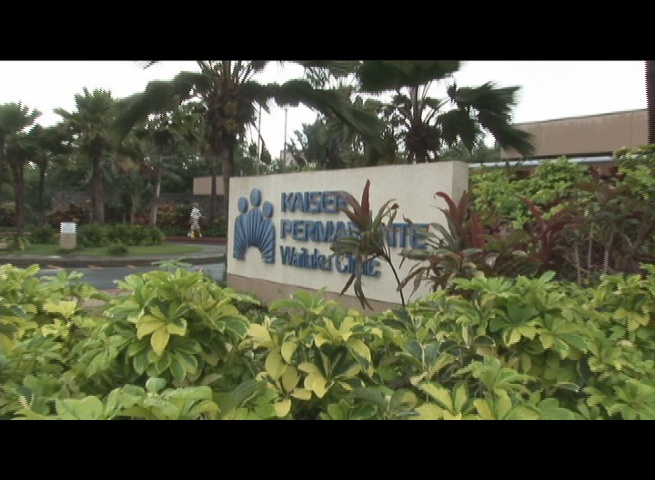Kaiser Awards $205,000 to Local Nonprofits

Kaiser on Maui, photo by Wendy Osher.
Kaiser Permanente Hawaiʻi awarded $205,000 in community benefit grants to local nonprofits working to improve health and wellness in Hawaiʻi. The organizations in this latest round of grant funding focus on behavioral health support, preventive screenings and healthy eating, with a main goal of reducing health disparities in Hawaiʻi. In 2016 alone, Kaiser Permanente provided nearly $800,000 in community benefit grants to Hawaiʻi nonprofits.
“Kaiser Permanente is committed to addressing our most pressing community health issues, such as obesity, mental illness and disparities in care and treatment,” said Mary Ann Barnes, RN, president of Kaiser Foundation Health Plan and Hospitals Hawaiʻi Region.
“We strive to support organizations that have a broad impact on every area of health in Hawaiʻi — that nourish our keiki by providing healthy lunches at school; improve vision and oral health through screenings and education in low-income communities; promote healthy behaviors and relationships in developing adolescents; and create a safety net for individuals struggling with mental illness,” said Barnes.
· Helping Hands Hawaiʻi received $35,000 to provide behavioral health and case management services to low-income and underserved adults suffering from mental illness. Community-based case managers will collaborate closely with qualified mental health professionals, including psychiatrists and advanced practice registered nurses, to provide health care and social services such as housing, transportation and employment. The program will bring together a network of 50 agencies to help nearly 400 individuals and reduce unnecessary hospitalization on Oʻahu and Hawaiʻi Island.
· The Kohala Center on Hawaiʻi Island received $35,000 to improve school lunch nutrition while supporting the procurement of locally grown produce, as part of a statewide Department of Education Farm-to-School taskforce. Following US Department of Agriculture child nutritional guidelines, The Kohala Center will develop a model for healthier school meals and local food procurement that will be introduced to 800 Hawaiʻi Island students in a pilot phase, with the potential to be adapted by DOE school food services statewide.
· Project Vision Hawaiʻi was awarded $35,000 to implement “Better Vision & More for Maui,” an effort to expand its presence on Maui through preventive screenings and advocacy. Its program, Better Vision for keiki, provides vision screenings, follow-up exams and dispenses glasses to children in low-income schools across the Valley Isle. The program will also focus on adult services, including events that increase access to health care services and screenings in high-poverty communities, and reducing the risk of falls caused by vision problems in seniors. More than 20,000 Maui residents of all ages are expected to benefit.
· Ala Kūola, a domestic violence prevention organization, received $25,000 to fund its Coaching Boys Into Men program. Based on a national model, CBIM provides high school athletic coaches with an evidence-based curriculum to model respect and integrity, discuss difficult topics with their athletes and promote healthy relationships. Ala Kūola is the only Hawaiʻi nonprofit facilitating the CBIM program in 17 schools statewide, providing coaches and community leaders with the tools and training they need to administer the program to their athletes, with topics ranging from respect toward women, responsibility of physical strength and understanding consent. Ala Kūola pays special attention to tailoring the CBIM program and materials to Hawaiʻi’s unique culture, values and language.
· The Hawaiʻi Department of Education, Office of Child Nutrition Programs received $20,000 in support of Hawaiʻi School Nutrition Authority, a member organization for school food service staff and professionals that provide meals to students. Prior support from Kaiser Permanente led the Hawaiʻi SNA to grow its membership from 30 to 300 members. The grant will provide training, travel stipends to national conferences and support that will allow Hawaiʻi SNA to organize its nonprofit structure and maintain a strong member base.
· Hawaiʻi Public Health Institute was awarded $20,000 to conduct research and analysis on health policies that have the potential to decrease tobacco use, reduce the prevalence of obesity and improve the health and well-being of all Hawaiʻi residents. The research will encompass community-level assessments on health priorities, as well as best practices on healthy eating and smoking prevention. HIPHI will collaborate with more than 200 partners, including state and county policymakers, departments and community-based organizations to develop policy recommendations from its findings.
· Trust for Public Land received $20,000 to research and advocate for the creation of Ke Alahula, a 30-mile multi-use coastal path along Oʻahu’s south shore, connecting West Oʻahu to Waikiki. In partnership with city, state and federal organizations, including the National Parks Service, the Trust for Public Land will complete studies, hold community gatherings and create models for the proposed path. The path would connect neighborhoods and enable more than 600,000 annual users easy access to more than 30 miles of safe paths for walking, biking, hiking and running.
· University of Hawaiʻi Maui College was awarded $15,120 to continue its work improving the oral health of children in Maui. The program “Keiki Dental Kits & Oral Health Outreach” distributes baby dental packets to the families of every baby born at Maui Memorial Medical Center. It also supplies pediatric offices, clinics and community health centers with dental packets, and conducts oral health outreach in at-risk communities through maternal home visits by community health workers. The program will serve 5,000 babies, mothers and families on Maui.










